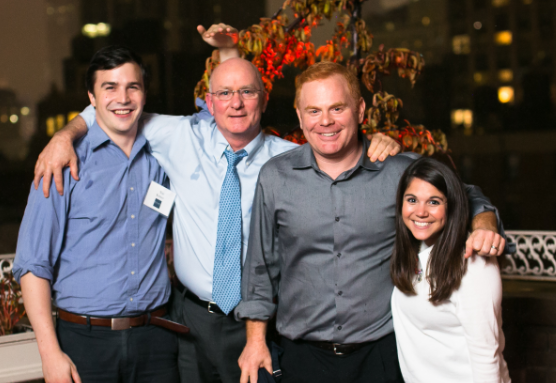"No enemy is worse than bad advice" Sophocles
Bad Advice is legion. It is the default status of advice as typically delivered in human interaction. Often proffered casually by people who possess real (or perceived) authority and/or expertise of some kind, it tends to leave an indelible imprint in the mind of those receiving it, whether they choose to pursue said advice or not.
In most cases it is only marginally harmful. In the realm of important matters, however, when it is proferred and subsequently followed, it is often life-alteringly devastating.
It is my belief that a fair measure of the suffering in this world could be traced back to bad advice. Most of us are in fact victims of having received and acted upon bad advice, whether we realize it or not. How many well-meaning parents, for example, have given their children devastatingly bad advice on important matters over the centuries? If I ask myself the famous Thielian question from his book, Zero to One , (“what important truth do very few people agree with you on”), this belief of mine would be at least one of my responses.
When applied to the realm of startup founders, acting on bad advice can be similarly destructive. Startups after all, are incredibly delicate organisms.
As a founder, one is literally barraged with advice multiple times a day. The founder is the proverbial “actor” after all, is in the midst of “venturing”, and thus naturally there are a cast of personalities who feel they are entitled to offer their point of view, whether or not they have been asked for it. For illustrative purposes, let’s list an array of sources of advice, (not comprehensive of course), that a founder might encounter on a typical day:
a mentor madness day at an accelerator in which they are participating
a meeting with their startup lawyer, accountant or other service provider
a board member of their company
an “advisor” they either have engaged or have been introduced to
a friend, spouse or family member
a colleague from a past work experience
a fellow founder
an investor in the company, or an investor with whom they are meeting
a startup coach or mentor
an “expert” in a certain field to whom they have been introduced
an employee of the founder’s startup or of another startup
This inventory, however incomplete, reveals a fair population of advice givers within the founder’s circle. How should a founder navigate these interactions and are there certain heuristics one could follow to avoid falling victim to bad advice, no matter how well-intentioned it might be?
Having both received and acted upon incredibly bad advice myself and having observed incredibly bad advice being delivered to others, (including to multitudes of founders), throughout my life, I have thought deeply about this problem over the years and listened carefully to the rare moments when top performers discuss this important and often overlooked topic. Below I have assembled a few rare glimpses into how some elite protagonists navigate the general topic of “advice”. I have noticed a common theme throughout.
Let’s begin with Valentina Schevchenko, a world champion martial artist. She is currently the UFC’s Women’s Flyweight Champion.
During her recent appearance on Joe Rogan’s podcast, Joe at one point asks her about her philosophy on navigating advice. She responds in English with a strong Russian accent so I have appended missing words using parenthesis to clarify her meaning in this transcript of mine. Any emphases in bold below are mine as well. For those interested in learning more about this fascinating champion and her powerful mindset, the full episode is on Spotify and can be found here.
—
Minute 59:45
Schevchenko: A person who doesn’t know a fighter’s psychology, or (who) never was in a fight, or (who) doesn’t know how it feels in a fight, they will give you wrong advices, they will teach you wrong things. No, so it’s completely (wrong), you don’t want (this) to happen. It’s something that will mess (with), gonna choke, gonna strike against (you).
Minute 1:00:16
Rogan: Did you get advice from other fighters? Did you train with other champions and get advice from them at all?
Schevchenko: I trained with other champions, but I don’t need advices. The only person whom I take advices from are my coach, my sister and my mom. Only three persons I consider have (the) right to give me advices. (For context: her mother is President of Muay Thai Federation in Kyrgyzstan and a lifelong martial artist. Her sister is also an elite world-class mixed martial artist competing in the UFC.)
Rogan: Obviously it’s working.
Schevchenko: This is the most important (part). (laughs)
A little later: Minute: 1:01:17:
Schevchenko: Even if you listen (to them) for 1,000 times. If they haven’t “felt it”, (their advice) will never work for you. (It’s) backwards. When I feel a person trying to give too much advices when no-one asked them to give that advices, I think OK maybe I have to get away from that person.
—
Compare this advice with that of legendary founder, (Sun Microsystems), and investor, Vinod Khosla. In an interview with Sam Altman in 2019, he reveals his philosophy on advice for founders. You can watch it here in its entirety.
Minute 3:46
Altman: What percentage of investors in Silicon Valley do you think are good long-term company builders.
Khosla: I get into a lot of trouble for saying this but 90% of investors add no value. My assessment (is that) 70% of investors add negative value to a company. That means they are advising the company when they haven’t earned the right to advise the entrepreneur.
Some of the junior people here (at his firm) when they ask me, hey- at this other firm young people are going on boards, can I be on a board? I say you haven’t earned the right to advise the entrepreneur so it’s unfair to the entrepreneur, so no!
Just because you got an MBA and joined a venture firm doesn’t mean you’re qualified to advise the entrepreneur.
Biggest piece of it, not the only way, is, have you built a large company? Have you gone through how hard it us, how uncertain it is, how traumatic it is to go through?
—
Here are some select quotes on advice from author, independent scholar and former trader, Nassim Taleb. He is world renown for such books as Skin in the Game, (which is in part a treatise on how to identify and avoid bad advice), The Black Swan, Fooled by Randomness, Bed of Procrustes, and Anti Fragility.
“Beware of the person who gives advice, telling you that a certain action on your part is “good for you” while it is also good for him, while the harm to you doesn’t directly affect him.”
- Skin in the Game: Hidden Asymmetries in Daily Life
“Avoid taking advice from someone who gives advice for a living, unless there is a penalty for their advice.”
- Skin in the Game: Hidden Asymmetries in Daily Life
“I hesitate to give advice because every major single piece of advice I was given turned out to be wrong and I am glad I didn’t follow them. I was told to focus and I never did. I was told to never procrastinate and I waited 20 years for The Black Swan and it sold 3 million copies. I was told to avoid putting fictional characters in my books and I did put in Nero Tulip and Fat Tony because I got bored otherwise. I was told not to insult the New York Times and the Wall Street Journal; the more I insulted them the nicer they were to me and the more they solicited Op-Eds. I was told to avoid lifting weights for a back pain and became a weightlifter: never had a back problem since. If I had to relive my life I would be even more stubborn and uncompromising than I have been. One should never do anything without skin in the game. If you give advice you need to be exposed to some losses from it.”
- Commencement Address, University of Beirut, 2016
—
In these examples note how each person refers to a “right” or some kind of proper standing to give advice. The advice-giver must have “earned” this right.
Schevchenko would never take advice on martial arts from someone she doesn’t recognize as having immense credibility in that field. Khosla does not allow people on his team who are right out of grad school and who have never run a startup, to sit on boards of his portfolio companies. He is also quite critical of his peers in Venture Capital- saying most create negative value to their portfolio companies. Taleb famously invokes Hammurabi’s Code as a heuristic when discussing the asymmetries associated with providing advice.
All this surely sounds “severe” to the modern ear. Khosla admits he gets into “a lot of trouble” for stating his beliefs.
But giving advice to a startup founder on what path he or she should pursue, for example, is another thing altogether than giving advice on what entree to order in a restaurant. Likewise is advice given from a physician to a patient in a different category. Likewise for advice given to someone like Schevchenko, who literally risks her health and life everytime she enters the octagon.
When I visited a very credentialed dermatologist some years ago concerned about a persistent mark on my temple, he dismissed my concern after having a quick look. Having read Taleb’s Skin in the Game, I held my ground and the doctor and I had three tense exchanges during that visit. He grew angrier with each polite challenge to his authority. I trusted my instincts and wanted him to biopsy it. He dismissed my concern after looking again, calling the mark a keratosis. At last he reluctantly and angrily capitulated and agreed to take a sample to have it biopsied. There was a visceral contempt in his voice. It was a highly unpleasant interaction for me.
Two days later- who do you think called me to tell me I had a cancer that needed to be removed via surgery immediately? It was certainly not the great, credentialed doctor. It was of course some minion to whom he delegated delivery of the news. To Taleb’s persistent point, the great doctor had no “skin in the game”. I literally did.
Had I listened to his advice, I would probably have lost a decent part of my face a year later. I was “severe” in how I stood my ground, if you like. But the stakes were too high, the topic too important, to be “nice” and to listen to the “great” doctor. I have only one face after all.
Similarly, founders do not have “multiple shots on goal”. In this sense they are profoundly not like investors who have a portfolio of companies. Founders are working in one company at a time and putting many years of their lives into the effort. But it’s more than that. In many cases they are deploying their entire “youth” towards the cause, and/or their entire soul, and/or their nights and weekends away from their families, and sometimes, sadly, even their physical and mental well being if we’re being honest. One wrong move and it can all crumble to nothing.
There are many terrific people in the startup ecosystem with enormous experience and great judgment. Yet with the rise of entrepreneurship, there has been a concomitant increase of less-principled opportunists who slither their way into such circles. So it is imperative for founders to know with whom they are speaking and to do their diligence. The founder must know or find out the reputation of the people before listening or inviting their counsel. They must further understand a person’s specific experience and expertise and just as importantly, where it begins and ends.
Similarly, if you are someone giving advice to a founder, you have to know your limits and should feel free to say, “I have no experience in this area”, should the conversation move away from where you know you stand on firm ground. How many times have I seen someone with expertise in a field, flush with the excitement of having influenced the listener, then begin to freewheel in areas where the have not “earned” the right to offer advice.
I have and always will subject myself to this same discipline. The stakes are simply too high and must be respected.

















































































































